To mark this week’s UK DVD release of Blumhouse’s Stephanie, I had the opportunity to talk to its co-writer Luke Piotrowski about his career in the film industry, the people who have inspired him the most, and his favourite horror/genre properties from the past few years. I want to thank Luke for taking the time out of his busy schedule to answer my questions. Thank you for supporting Horror Obsessive and enjoy!
Jon Sheasby: First off, I have to congratulate you for Super Dark Times, which is easily among my favourite films from this current decade. The first time I really took notice of it was when you and your writing partner, Ben Collins, appeared on Episode 66 of the Shock Waves podcast to discuss your career so far and your favourite coming-of-age horror films. I was just wondering when it comes to the horror community—specifically well-respected podcasts and websites—how much of an impact do they have on the exposure of a film like Super Dark Times, among the gluttony of higher-budgeted films with more marketing power?
Luke Piotrowski: Wow, it’s lovely to hear you say that, first of all. In terms of exposure, I mean, I don’t see the numbers. Obviously, it wasn’t a wide release or huge financial success. It’s a humble little movie. But on a personal level, the response and support of the horror community has been incredible. Both well-respected and lesser-known podcasts and websites, as well as tweets, posts, and little bits of fan art, it all lets us know that we succeeded. We did our job and connected with SOMEONE out there. And for small films that is hugely important. We’re never going to reach everyone but if we can get a somewhat close-knit community talking, that gets more eyes on it. And every viewer counts, you know?
It’s funny, and I don’t mean to be controversial because Ben and I are almost exclusively horror writers and I know shit like this gets taken out of context all the time, but I never thought of Super Dark Times as a horror film as we were writing it. Happy to have people classify it as such now, but I was uncomfortable framing it in that way because I wasn’t sure it would deliver in that way. Then when it first started screening, you could tell, certain critics weren’t sure what to make of the ending. They were all so frustrated by the sort of hard genre turn it takes. Which was always the intention, the only ending we ever wanted or wrote. When the horror journalists started seeing it, though, we could tell right away, they got it. They were on board. The horror community is sometimes more accepting and open-minded in that way. Not to dismiss certain criticisms but to say…I guess that it was a relief when the movie finally got out of the festival circuit and into the hands of my people. The horror people.
JS: I’ve always been fascinated by the relationship and collaboration between writing partners. We often see more than one writer credited for a screenplay, but for the most part, we know they worked independently at different times and have probably never even met one another. When it comes to yourself and Ben, is there a specific method to the collaboration?
LP: It varies from project to project. Super Dark Times, in particular, was an idea that Ben came to me with…and I rejected. I didn’t want to write it. It felt needlessly bleak and terribly hard to sell. We’re still nobodies, but at the time we were REALLY nobodies and needed to have content we could try and sell to studios. But he went and wrote a draft anyway. More of a freewriting process, fast and loose with gaps and room to explore. From there I came in to do some passes of my own, taking more time to fill those empty spaces with my own plot and character beats. So, it’s like he made the bones and the organs. I shaped the meat and the skin. From there it was less isolated, once we’d each had our time alone with it to take our big swing. Kevin Phillips, our director, even did a pass later on.
We don’t always work that way, though. In general, we talk on the phone a lot, share Google docs online where we can comment on each other’s notes and ideas. When we are in the thick of it sometimes we lay the movie out on notecards like a mini writer’s room. But we never truly WRITE in the same place. The process of actually putting the words down, hitting the keys, that’s a private process of personal discovery. We go down into the well alone. And show one another what we found when we return.
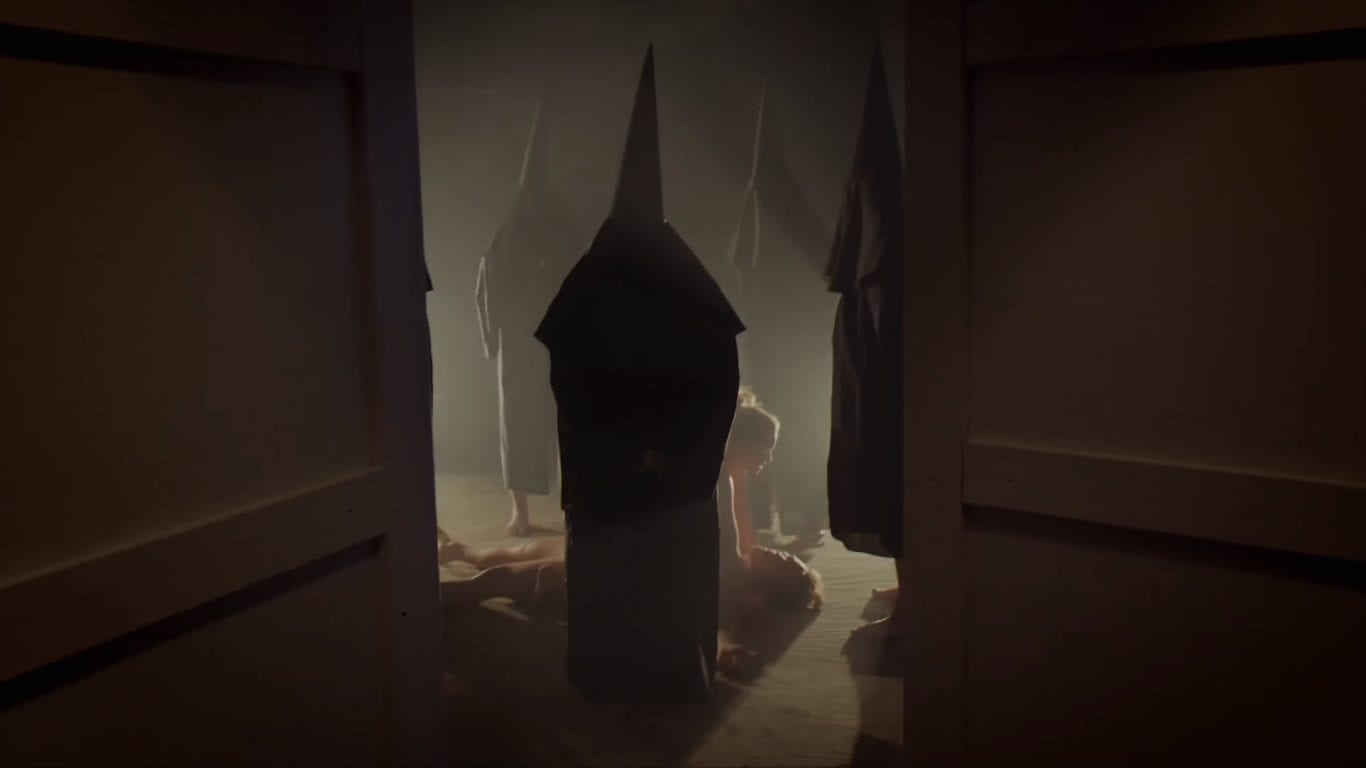
JS: Would you say you both have different strengths as writers? For instance, is one of you better at dialogue than scene action, or are you both as well-rounded as each other?
LP: That’s an interesting question and I’m sure we’d both have different answers. I think most writers are partial to their own dialogue since that’s the most obvious “writerly” part of the finished film. You can point to a line and say, “I wrote that part, that was me.” Which can do wonders for a fragile but voracious writer ego. But I’m probably more precious about it than Ben. He’s much more giving in that way.
In general, and again, maybe he’d have a different answer, I’d say Ben is braver about starting things and I’m more meticulous about finishing them. He’s about freely jamming and I’m about finding confluence and putting seemingly random ideas together. Finding meaning. Those roles flip-flop from time to time, though.
JS: Over the past few years, the film/TV landscape has been dominated by nostalgia, seeing everything from new Star Wars sequels to TV revivals such as Twin Peaks: The Return to monstrous pop culture phenomenon’s like Stranger Things. With something like Super Dark Times, was there a specific reason as to why it was set in the 1990s or did it evolve into a ’90s period film during the writing process?
LP: The simple answer is that that’s when we grew up. The emotional adolescent experience, I think, is pretty timeless and universal. We all FEEL the same sense of confusion and guilt and paranoia in our teenage years. But what we do from day to day and how we speak, that’s always changing. If we had tried to write the daily lives of teenagers in 2016, we would have gotten the details wrong, it wouldn’t ring true and we’d have alienated them. But by writing what we knew, about the world we could represent in full detail…the ’90s kids respond because they recognize it and modern kids respond because even if the details are different, the emotions are still there.
The other answer is that Ben was sharp in wanting to make sure that if we told a story about high school violence, we should set it before the events at Columbine High School. Perspectives changed after that.
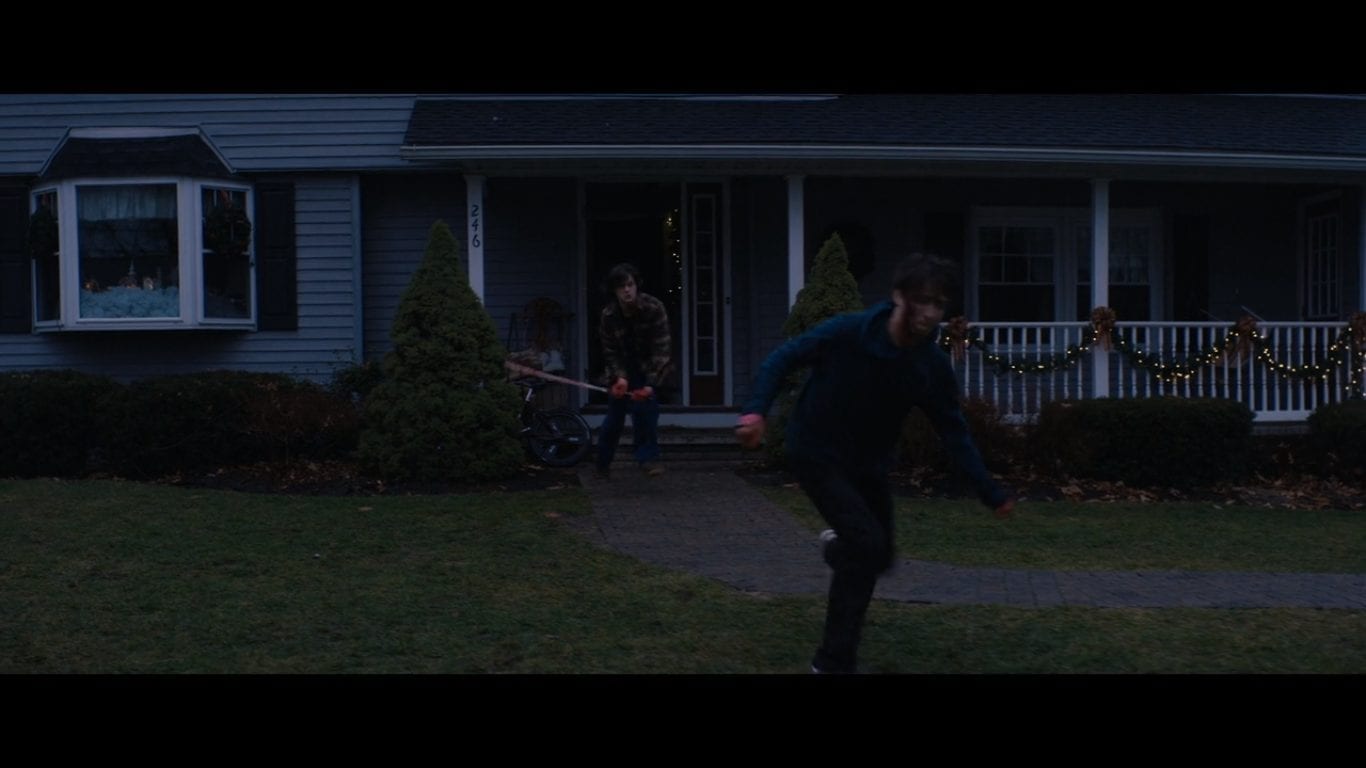
JS: One of the best things about Super Dark Times is the way in which it deals with ’90s nostalgia. The period detail is very much in the background and a part of the film language, instead of being in-your-face and excessively obvious. Was that decision written on the page or was that a directorial choice made by Kevin?
LP: The characters are wholly original, but I think everyone involved in the film used the setting as an opportunity to share details about their own lives. We all had CD Walkmans growing up. We all played Minesweeper.
It was never intended to be a love letter to the ’90s but to some extent, when you’ve got a bunch of people in their 30s writing, directing, producing and production designing a movie set at that time…it turns into, “Oh shit! Remember Bagel Bites?” But we wanted to avoid the usual, distracting traps. Tons of obvious needle drops, for example. The song playing when you have your first kiss probably isn’t going to be your favourite song. Or some huge hit. It’s going to be some obscure, dated single. The characters live in the mid-’90s, not an episode of VH1’s I Love the ’90s. Which is now itself a dated reference. The snake is eating its tail!
JS: So far, you and Ben have seen three of your screenplays get made into feature films (SiREN, Super Dark Times, and Stephanie), so how much have you seen your scripts change from page to screen in regards to all three films?
LP: I would say SiREN changed the least, Stephanie changed the most, and Super Dark Times hit a sweet spot in between.
SiREN was a small movie made very quickly. We didn’t have much time to work in depth with our director, Gregg Bishop, or the actors before filming was underway. I’m very happy with how that movie turned out, in part because it hews so closely to our script. But some of the best stuff on Super Dark Times came from having a little more time and wiggle room for input and development.
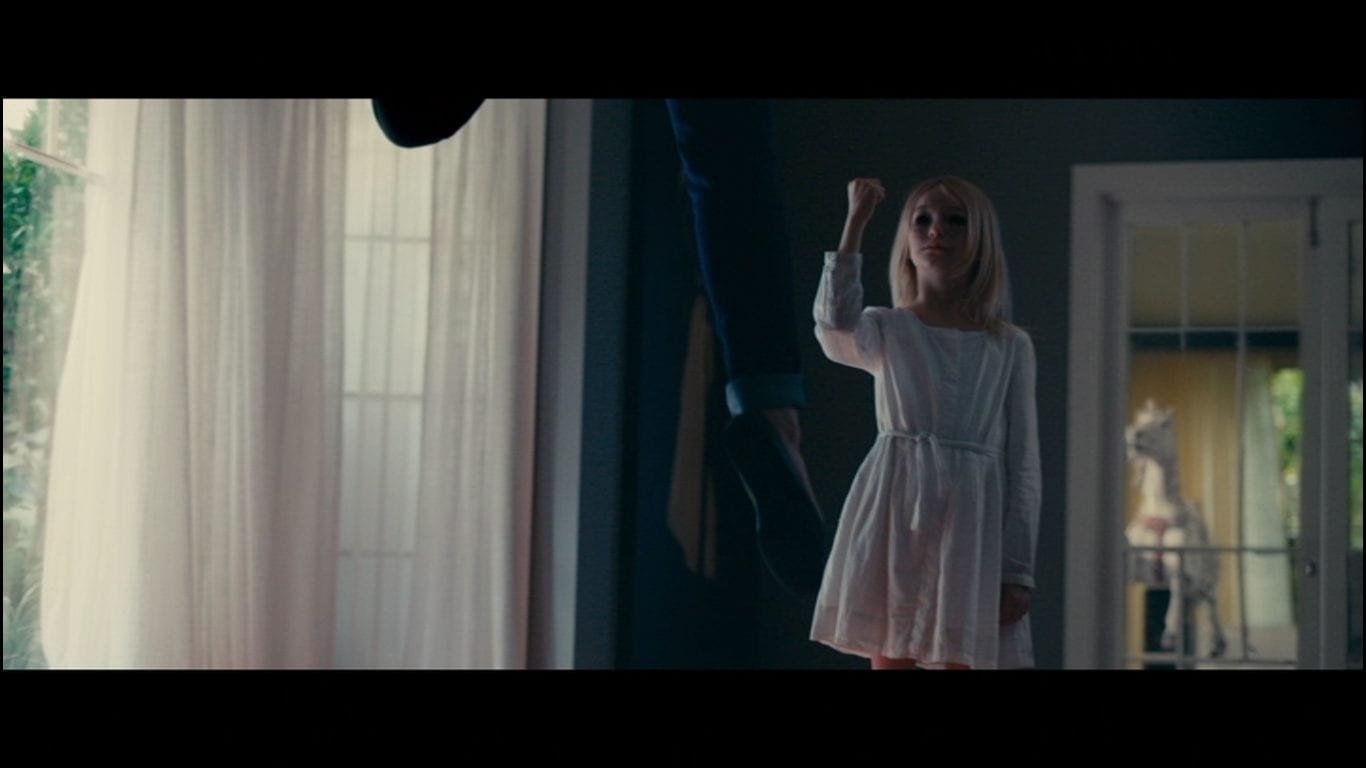
JS: Can you talk a bit about working with Akiva Goldsman on Stephanie? I mean, the film has a great cast with the likes of Frank Grillo and Anna Torv, but how crazy was it to learn that the Academy Award-winning writer of A Beautiful Mind would be directing your screenplay?
LP: Akiva’s a writer so he gets it. He treated us really well, letting us be on set as much as we wanted. Always welcoming. He would push us to change things in the script but also admit at times when those things weren’t working and steer it back. But he’s also a director and at a certain point, he needs to make HIS movie. So, we were involved as much as we could be, but certainly when it comes to edits and reshoots on a studio film…it’s time for the writers to stay out of the way.
We learned a great deal from the process, though. As novice screenwriters, it was invaluable to work with the screenwriter who more or less conquered Hollywood.
JS: What about some of your influences? Who do you look to for inspiration? When watching Super Dark Times, I constantly felt a sense of Lynchian unease, what with the nightmarish horrors of small-town suburbia and the lurid dream sequences. Is David Lynch a filmmaker from whom you’ve learned, and if so, what is your favourite work from his oeuvre?
LP: Beyond the samurai sword, Super Dark Times is actually rooted in a lot of Japanese influences. Ben, Kevin and I are all great appreciators of an existential, giant robot anime series called Neon Genesis Evangelion and its director, Hideaki Anno. He’s primarily known for animation, but he’s done several fascinating live action films too. He blends genre in a way not dissimilar from Lynch. Why can’t something be scary, sad, funny and beautiful all at once?
There’s also the films of Shunji Iwai, particularly All About Lily Chou-Chou, which explores some similar relationships to Super Dark Times.
I’m not quite the Lynch aficionado that Ben is, but he’s often part of the discussion when we’re digging into something new. His work has the ability to be incredibly unnerving, but it’s rarely clear WHY it’s so unnerving. Attempting to understand that particular alchemy is incredibly useful when writing horror.
There’s still a ton of Lynch I need to see, but I respond pretty strongly to the down-the-rabbit-hole narrative structure of Blue Velvet. And, to get really specific, the Mystery Man scenes in Lost Highway and Major Briggs’ dream monologue to Bobby in Twin Peaks. Those are the moments I’ve found most personally inspiring.

JS: How about the current crop of horror/genre filmmakers? Are there any films from the past few years that have particularly impressed you, not only as a writer but as a fan?
LP: I’m a big fan of folklore and mythology so The Witch was very much my jam, the kind of movie I wish I had written.
And this will sound like nepotism since he’s a friend, but David Bruckner’s The Ritual was another one that hit all the right notes for me. A monster movie that was truly scary. The perfect, fresh execution of a familiar horror setup.
Annihilation blew me away. The best cosmic horror I’ve seen put on screen. And along with The Ritual, the best creature design in at least a decade.
On the TV front, Legion and Devilman Crybaby have been standouts for me this year. Legion isn’t straight horror, but it plays with the tropes in overwhelmingly skilful ways. Another example of genres mixing to create something COMPLETELY new.
JS: And finally, Luke, what can we next expect from yourself and Ben? Is there anything currently in development that we might get to see in the near future?
LP: Tons in the works, not sure how much we can talk about. We’re at the Sundance Screenwriters Lab right now working on an adaptation of John Darnielle’s novel, Wolf in White Van, that we’re very excited about. It’s a beautiful, challenging book and something that I think fans of both Super Dark Times and things like Twin Peaks would enjoy.
We’re chasing some studio projects as always, but we’re also very close to getting another passion project on its feet with a very cool director. Our own brutally emotional take on a haunted house movie…one that has the potential to make Super Dark Times look super light-hearted. So, uh, look forward to that. Hopefully, we get to make it. No compromises.
Once again, I want to thank Luke for taking the time to answer my questions, and I hope y’all enjoyed the conversation. Have you seen SiREN or Super Dark Times or Stephanie? If so, what are your thoughts on those three films? Please leave a comment and let us know by following the information about our social media accounts, which can be found below. Alternatively, you can follow me on Twitter (@JonSheasby), and we’ll continue the conversation over there.


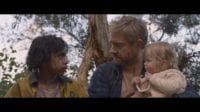
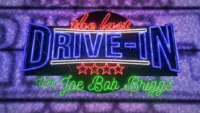
One Comment
Leave a Reply